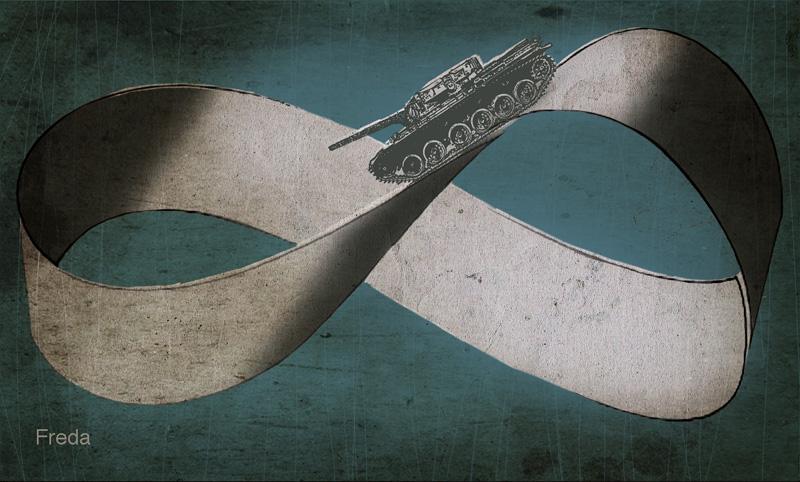
VI. Perpetual War
The violence baked into heat.
Climatologists are very careful when talking about Syria. They want you to know that while climate change did produce a drought that contributed to civil war, it is not exactly fair to say that the conflict is the result of warming; next door, for instance, Lebanon suffered the same crop failures. But researchers like Marshall Burke and Solomon Hsiang have managed to quantify some of the non-obvious relationships between temperature and violence: For every half-degree of warming, they say, societies will see between a 10 and 20 percent increase in the likelihood of armed conflict. In climate science, nothing is simple, but the arithmetic is harrowing: A planet five degrees warmer would have at least half again as many wars as we do today. Overall, social conflict could more than double this century.
This is one reason that, as nearly every climate scientist I spoke to pointed out, the U.S. military is obsessed with climate change: The drowning of all American Navy bases by sea-level rise is trouble enough, but being the world’s policeman is quite a bit harder when the crime rate doubles. Of course, it’s not just Syria where climate has contributed to conflict. Some speculate that the elevated level of strife across the Middle East over the past generation reflects the pressures of global warming — a hypothesis all the more cruel considering that warming began accelerating when the industrialized world extracted and then burned the region’s oil.
What accounts for the relationship between climate and conflict? Some of it comes down to agriculture and economics; a lot has to do with forced migration, already at a record high, with at least 65 million displaced people wandering the planet right now. But there is also the simple fact of individual irritability. Heat increases municipal crime rates, and swearing on social media, and the likelihood that a major-league pitcher, coming to the mound after his teammate has been hit by a pitch, will hit an opposing batter in retaliation. And the arrival of air-conditioning in the developed world, in the middle of the past century, did little to solve the problem of the summer crime wave.